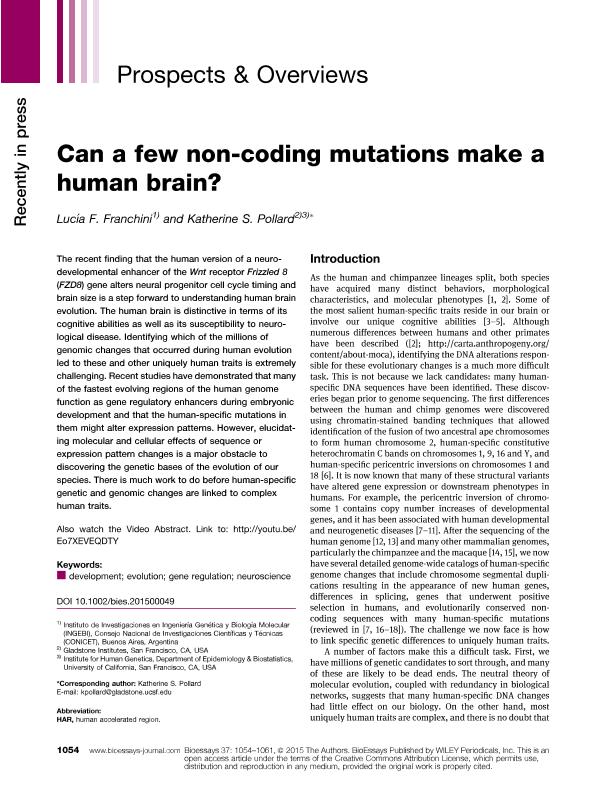Artículo
Can a few non-coding mutations make a human brain?
Fecha de publicación:
10/2015
Editorial:
John Wiley & Sons Inc
Revista:
Bioessays
ISSN:
0265-9247
Idioma:
Inglés
Tipo de recurso:
Artículo publicado
Clasificación temática:
Resumen
The recent finding that the human version of a neurodevelopmental enhancer of the Wnt receptor Frizzled 8 (FZD8) gene alters neural progenitor cell cycle timing and brain size is a step forward to understanding human brain evolution. The human brain is distinctive in terms of its cognitive abilities as well as its susceptibility to neurological disease. Identifying which of the millions of genomic changes that occurred during human evolution led to these and other uniquely human traits is extremely challenging. Recent studies have demonstrated that many of the fastest evolving regions of the human genome function as gene regulatory enhancers during embryonic development and that the human-specific mutations in them might alter expression patterns. However, elucidating molecular and cellular effects of sequence or expression pattern changes is a major obstacle to discovering the genetic bases of the evolution of our species. There is much work to do before human-specific genetic and genomic changes are linked to complex human traits.
Palabras clave:
Development
,
Evolution
,
Gene Regulation
,
Neuroscience
Archivos asociados
Licencia
Identificadores
Colecciones
Articulos(INGEBI)
Articulos de INST.DE INVEST.EN ING.GENETICA Y BIOL.MOLECULAR "DR. HECTOR N TORRES"
Articulos de INST.DE INVEST.EN ING.GENETICA Y BIOL.MOLECULAR "DR. HECTOR N TORRES"
Citación
Franchini, Lucia Florencia; Pollard, Katherine S.; Can a few non-coding mutations make a human brain?; John Wiley & Sons Inc; Bioessays; 37; 10; 10-2015; 1054-1061
Compartir
Altmétricas




